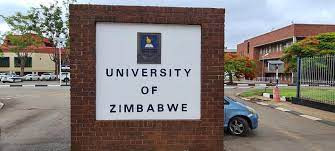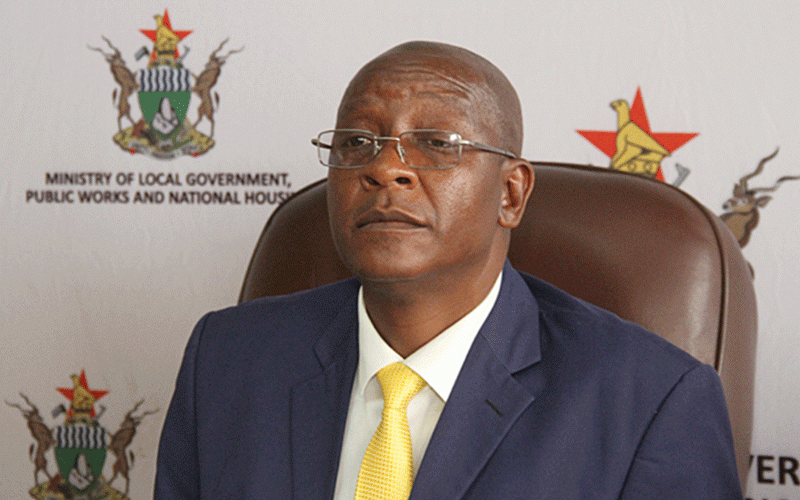
BY PHYLLIS MBANJE THE desire is to have a national healthcare system that ensures equitable access to services of sufficient quality to all, thereby, leaving no one behind,” said Vice-President and Health minister Constantino Chiwenga while addressing foreign and local development partners and suppliers exactly a year ago.
He was updating delegates on the new structures in the Health ministry and other initiatives to boost efficiency and expand local capacity.
“Our vision is, therefore, underpinned by the requirement to restructure the ministry and introduce a new working culture premised on sound work ethics reflecting professional maturity, focus, hard work and patriotism.”
The promise
The restructuring exercise which was touted as the game-changer will be on five levels — primary, secondary, tertiary, quaternary and the quinary and higher research.
On paper, all are anchored on a new hierarchy, organised strategic partnerships and a sustainable funding model with better healthcare, productive and well re-munerated health workforce.
The new structure was expected to increase health-related exports, address conditions of service for health professionals, champion a sustainable funding model and create a good work ethic.
The Health minister in October this year said beyond the pandemic, the government was working on improving healthcare services offered by public sector facilities.
- Chamisa under fire over US$120K donation
- Mavhunga puts DeMbare into Chibuku quarterfinals
- Pension funds bet on Cabora Bassa oilfields
- Councils defy govt fire tender directive
Keep Reading
“We are re-equipping the hospitals including ambulance fleets’’.
“The government will put in place the appropriate framework for public-private-partnerships (PPP).
“We are aware that the lack of a robust PPP framework has been a deterrent in the past’’, he said.
Chiwenga said as the ministry rebuilt quality services in public sector facilities good outcomes should become more evident.
“Our country should be a preferred destination for healthcare services/inbound medical tourism.
This country used to treat people coming from other countries. We still have very good skills servicing both public and private institutions.
This is why renovating and re-equipping must be speeded up so that we resuscitate medical tourism.”
But how did the once robust health delivery system lose its lustre in the first place?
The rot
Upon gaining independence in 1980, the country was on the path to progress, moving towards middle-income status.
Most outstanding was the routine childhood immunisation programmes against major diseases.
It became almost universal, and health services spread to rural areas.
The robust health sector was rooted in a functional and excellent primary healthcare.
But Zimbabwe suffered recurrent cycles of political and economic crises in recent years.
Between 1999 and 2008, Zimbabwe witnessed economic decline, severely compromising basic healthcare service delivery, public sector capacity, infrastructure maintenance, and the investment climate for the private sector.
Part of the present problems in healthcare in Zimbabwe stem from the disastrous 1995 Economic Structural Adjustment Programme, which resulted in a decline in social service delivery and the introduction of user fees at health centres in an economic environment characterised by declining employment.
Job actions became the order of the day and public facilities became empty shells battling to provide basic drugs such as Paracetamol.
Of late health personnel have been leaving in droves for greener pastures, further plunging the health sector into abyss.
Health stakeholders including personnel have expressed mixed feelings over the restructuring exercise.
Stakeholders on restructuring
“We were told that the restructuring was informed by the need to improve effectiveness, efficiency and integration of the other national institutions,”said Community Working Group on Health director Itai Rusike.
“The 2021 Finance and Economic Development ministry health budget was, therefore, supposed to reflect the urgency of tackling the COVID-19 pandemic and its debilitating effects, and also act as a springboard in operationalising the new structure and enhance the vision of the Health ministry.
“Yet in its wisdom, the Finance ministry chose to focus on the old structure, with a token allocation to the newly-introduced programme of biomedical sciences and bio-pharmaceuticals.”
Rusike said, as civil society, they were insisting that the process be guided by the new National Health Strategy of 2021/25 and prioritise the agreed 10 strategic areas.
The 10 strategic areas refer to access to medicines and commodities, improved water and sanitation, improved health infrastructure and equipment, improved health sector personnel performance and improved governance.
Improved reproductive, maternal and child healthcare and nutrition, public health surveillance and disaster response and preparedness, domestic funding, hospital care and reducing morbidity and mortality are the other key areas.
“In order to strengthen primary healthcare and reduce unnecessary referrals to higher levels the primary healthcare level needs to be funded fully in order to also address the non-referrals at the secondary and tertiary levels,” noted Rusike, who added that as an organisation they supported the idea of having district hospitals in Harare and Bulawayo.
This, he said, would alleviate the burden of patients at the central level.
“Health grants to urban local authorities for supporting primary healthcare delivery need to be increased.
This will enable the local authorities to lower their user fees to more affordable levels,” Rusike said.
He explained that reasonable funding in line with the Abuja Declaration would be used among other issues to capitalise the National Pharmaceutical Company of Zimbabwe (NatPharm), equipping of the emergency care services, especially the acquisition of ambulances or other modes of transportation.
Of importance too is ensuring adequate staffing of health centres, particularly those in remote areas and facilities that deal with emergencies.
Tied to this would be remuneration of healthcare workers to address the unprecedented brain drain, labour withdrawal/strikes in the sector.
Reflecting on the same Citizens Health Watch’s Fungisayi Dube said the COVID-19 pandemic worsened the health burden.
“COVID-19 has wrong-footed our already fragile healthcare systems and the little gains we had made are under threat.
Many of us have lost livelihoods and healthcare in general has become more expensive,” Dube said.
Dube said there was need for strategies that are pro-poor and gave priority to vulnerable populations.
“Government needs to address skills shortage and staff exodus, and give priority to maternal healthcare and mental healthcare as COVID-19 has robbed us of our sanity.”
She implored the government to invest in digital health systems, especially in urban areas where there is internet accessibility.
“This could help bring down the cost of seeking healthcare and result in other benefits while also decongesting our overwhelmed health facilities,”
Meanwhile, the Zimbabwe Senior Hospital Doctors Association has said while it appreciates the efforts being made by the government to curb the brain drain in the health sector, it remained concerned with suggestions that WiFi and canteens are the required incentives.
“The employer has been ignoring the elephant in the room, which include issues of fair and commensurate remuneration, an enabling, conducive working environment and medical insurance for healthcare workers.”The representive body said lack of proper consultative dialogue was glaring.
“The employer must listen to genuine grievances, call for bipartite dialogue, and avoid repressive measures which do not help to retain healthcare workers, but kill the morale of those remaining.”
- Follow Phyllis on Twitter @pmbanje











